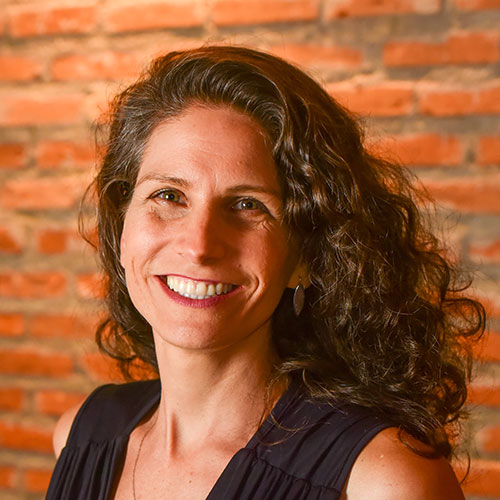Pretas de Angola Collective carries out highly qualified political advocacy in the Cerrado region
Group strengthens the anti-racist fight in the state of Goiás through the political and social participation of black women, the expansion of democratic spaces and the defense of climate justice
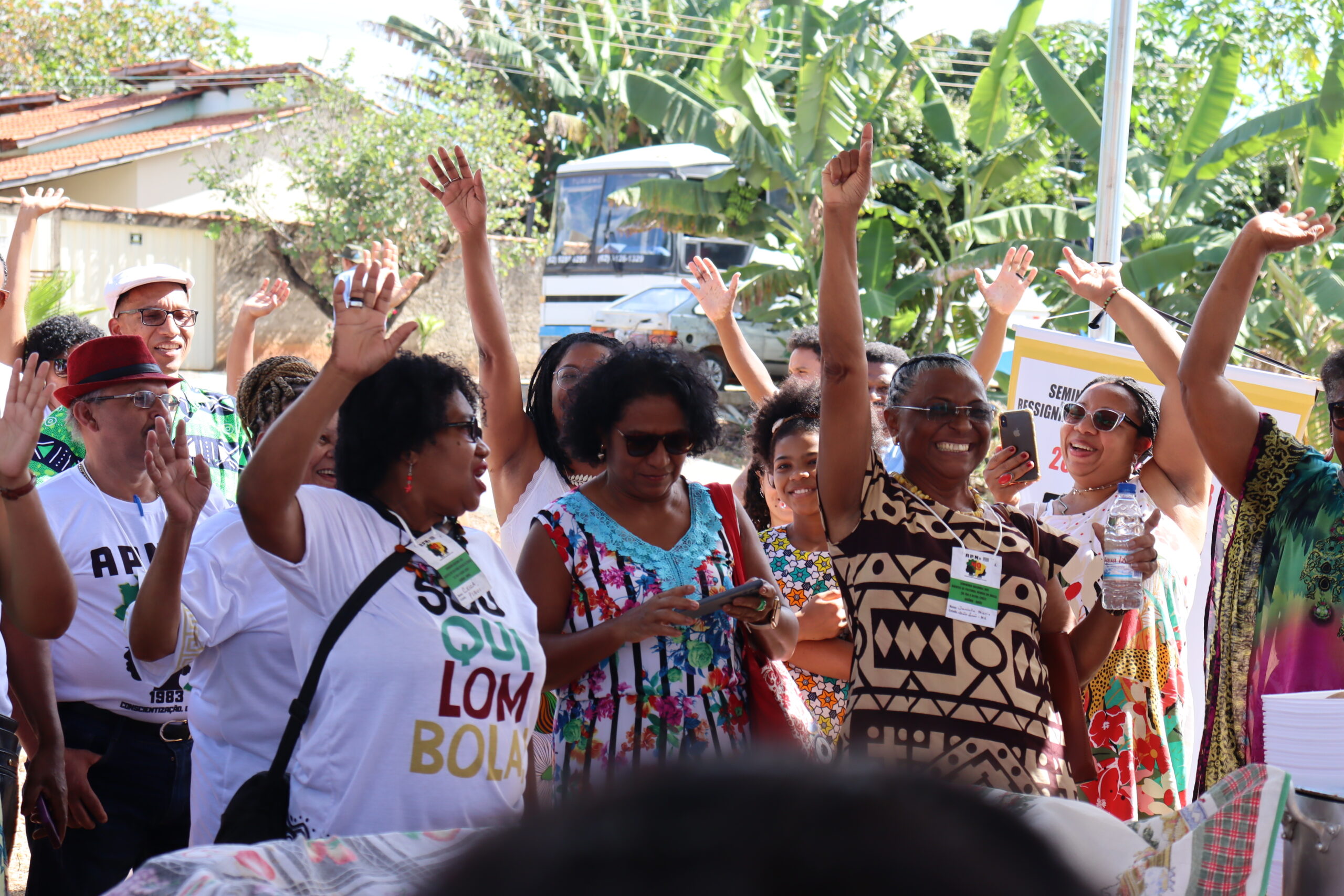

Several agendas drive the political advocacy of the Pretas de Angola Collective, in Goiânia, capital of the Brazilian state of Goiás. From mothers who suffer state violence to income generation alternatives in Quilombo communities, everything is addressed and brought to public debate. In order to achieve that, the group, comprised of ten women, all postgraduates, participates in meetings from the base to the top.
“We have a seat on the Human Rights Commission of the Legislative Assembly, we already had the presidency of the State Council for Racial Equality, and today we have a seat on the Municipal Council for Racial Equality of Goiânia. But we also do grassroots work with social organizations”, explains the History professorJanira Miranda, founder of the collective.
With a self-declared population of black and brown people of almost 50% in Goiânia alone, and 25% of black women throughout the state, the collective shows that urgent issues need to be discussed in spaces of power. The group emerged in 2015 through the activism of Janira Miranda, a PhD candidate in History at the University of Brasília (UnB) and professor at the Federal Institute of Goiás (IFG).
Black movement
Janira Miranda was born in the state of Maranhão, grew up in the Amazon, and settled in Goiânia 23 years ago. She says that her activism is directly linked to the black movement within universities. “I wasn’t an affirmative action student, but, as a black professor both at PUC and at the Federal Institute of Goiás, and under the influence of my activism in the black movement, I turned to this platform that organizes the black community within the university”, she recalls.
According to the professor, despite being significant, the black population of Goiás is often made invisible by the context of agribusiness and its impact on the environment. “Goiás is considered the world’s largest grain and meat exporting province. It sells to China, Russia, and Saudi Arabia. And Goiânia is the largest square of a capitalist model that creates a Brazilian surplus.”
Janira reinforces that the city has a high Human Development Index because it relies precisely on the work of this black population. “The municipality of Aparecida de Goiânia, in the metropolitan region, is a highly vulnerable territory, where more than 80% of people claim to be black. Teresina de Goiás, which is Terra Kalunga, sometimes appears as the second, sometimes as the third largest municipality with black density in the country. So Goiás has spaces with high black density in terms of population.”
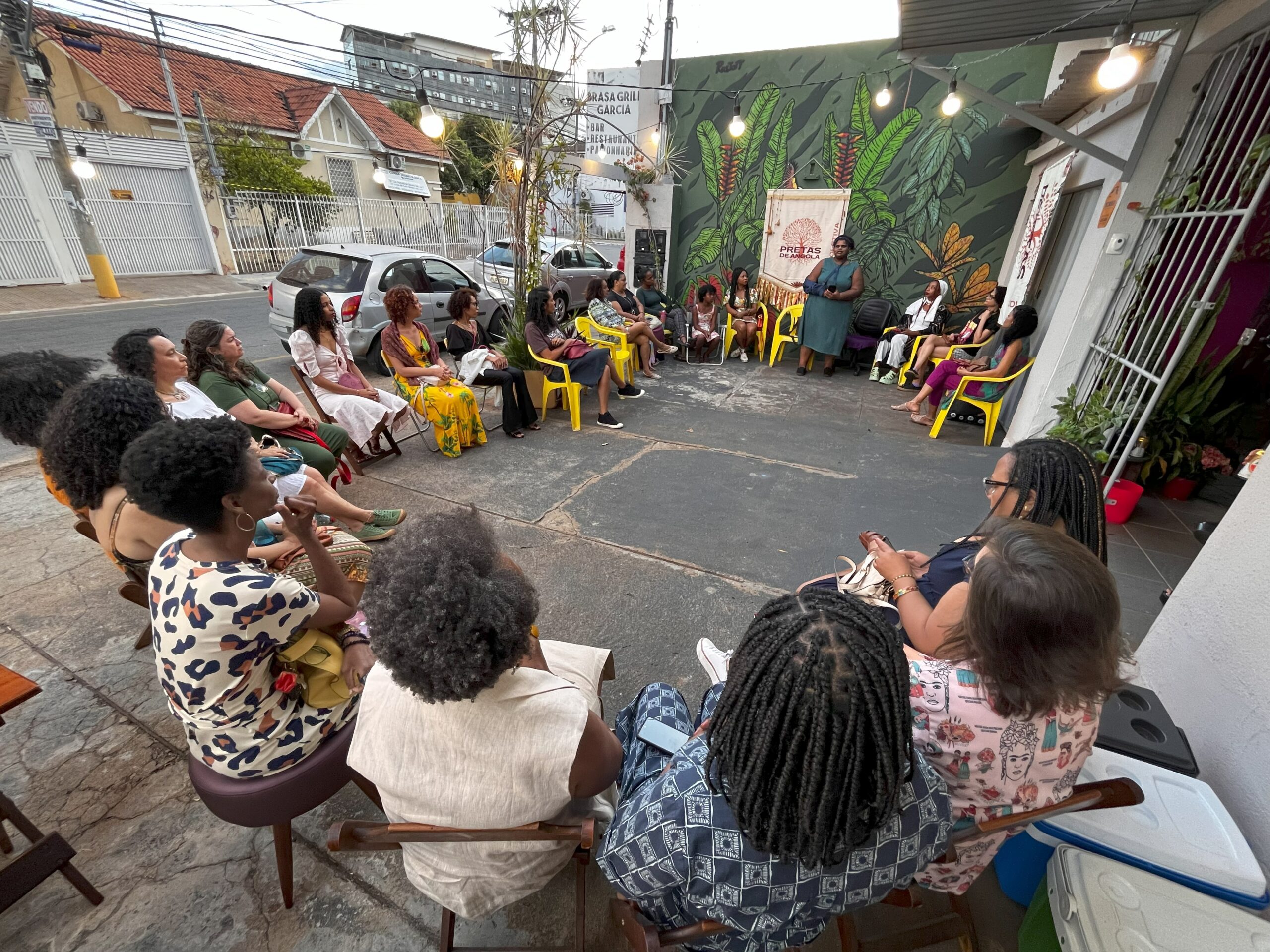
University education
For Janira, the black movement within the university has been an important ally in the anti-racist fight and goes far beyond the creation of research centers. “We have the policy and promotion of racial equality commission, which includes the hetero-identification commissions, to avoid fraud in quotas [a system which reserves spots in Brazil’s public and private universities for students of African or Indigenous descent]. We have seminars and meetings on black cultures, but we also set up a festival, for example, focused on the relationship between the internal community and quilombola communities [Afro-Brazilian settlements first established by escaped slaves in Brazil]”, he highlights.
Furthermore, the fact that the collective comprises postgraduate black women means that the group moves easily through instances of power. “Even though we are all from the outskirts of town, some still based there to this day, others quilombolas, we have the difference of having a higher level of education. This qualification allows us some participation and access that not all collectives can achieve.”
Quilombola Communities
The relationship with quilombola communities, in particular, is central to thePretas de Angola Collective. Among its main struggles is the defense of title to quilombola lands. The group also carries out several projects along with the Kalunga population, which forms the largest quilombola territory in Brazil, occupying three municipalities in Goiás in a total of 39 communities.
“We have the Guarani aquifer, the cradle of fresh waters in South America, so these are gigantic themes, which we seek to address based on the daily lives and practices of cerradeira women, women from traditional communities”, says Janira Miranda.
The activist also draws attention to the legacy of black experiences in the cultural field. “The city of Catalão has the biggest Congada party in the country, a black party with this interface of African reminiscences in Catholicism in Goiás, which has its issues, its dramas.”
She comments on the large number of traditional religious communities, of African origin, that are suffering a systematic attack: “This attack comes from our social environment, from surrounding violence, to an attack from other religious fields, especially neo-Pentecostalism.”
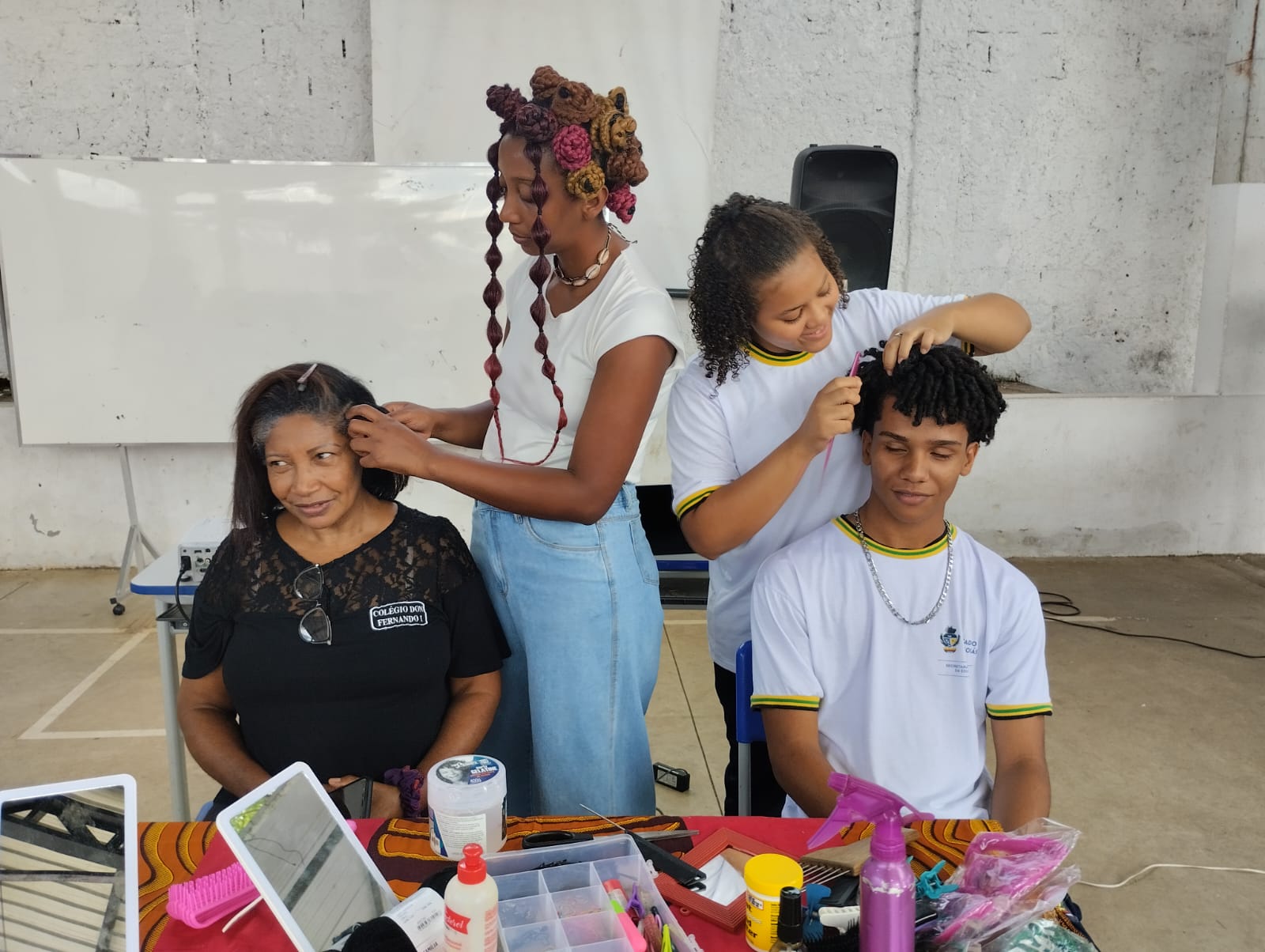

Anti-racist fight
The Pretas de Angola Collective forms an independent group and relies on partnerships to implement its actions, such as the Federal University of Goiás (UFG), the Federal Institute of Goiás (IFG) and the NGOs Dandara no Cerrado, Mulheres Negras Malungas and Movimento Negro Unified.
The group also operates in a network alongside the National Articulation of Brazilian Black Women, the Coalition for Black Rights and the Goiana Network of Black Women. “Through these networks, we are organizing the March of Black Women in Brazil. Next year, the march turns ten years old and will be the second in Brasília this year. We are preparing to take 100 thousand women there”, comments Janira.
It was through this network that the collective also took action in the city in the face of cases of violence with great national and international repercussion, such as the murders of Jorge Floyd, in the United States; João Alberto Silveira, in the southern city of Porto Alegre, which took place inside a Carrefour supermarket; and the Congolese Moïse Kabagambe in Rio de Janeiro.
Pretas de Angola Collective
Locally, the collective has given special attention to the issue of youth and the Brazilian black genocide. “Now we are introducing a debate about placing cameras on the uniforms of public security agents and police officers. It’s a huge fight.”
To expand democratic participation, the collective organizes the so-called Leisure Street: “We close a street and offer toys for the children, a bounce house, a clown show, something like that, and lunch, made in collaboration, for the community. And chat. Our focus is women”, says the teacher.
With all this, there is no doubt that the activism and impacts of the collective have been effective. “Every social movement has its specificities, pluralities and differences. The black movement, in the case of Goiânia, changed a lot. And maybe, because we are at a university, we can talk to everyone. We are part of, and perhaps an indicator, of this change. And it feels really good!” says Janira Miranda.
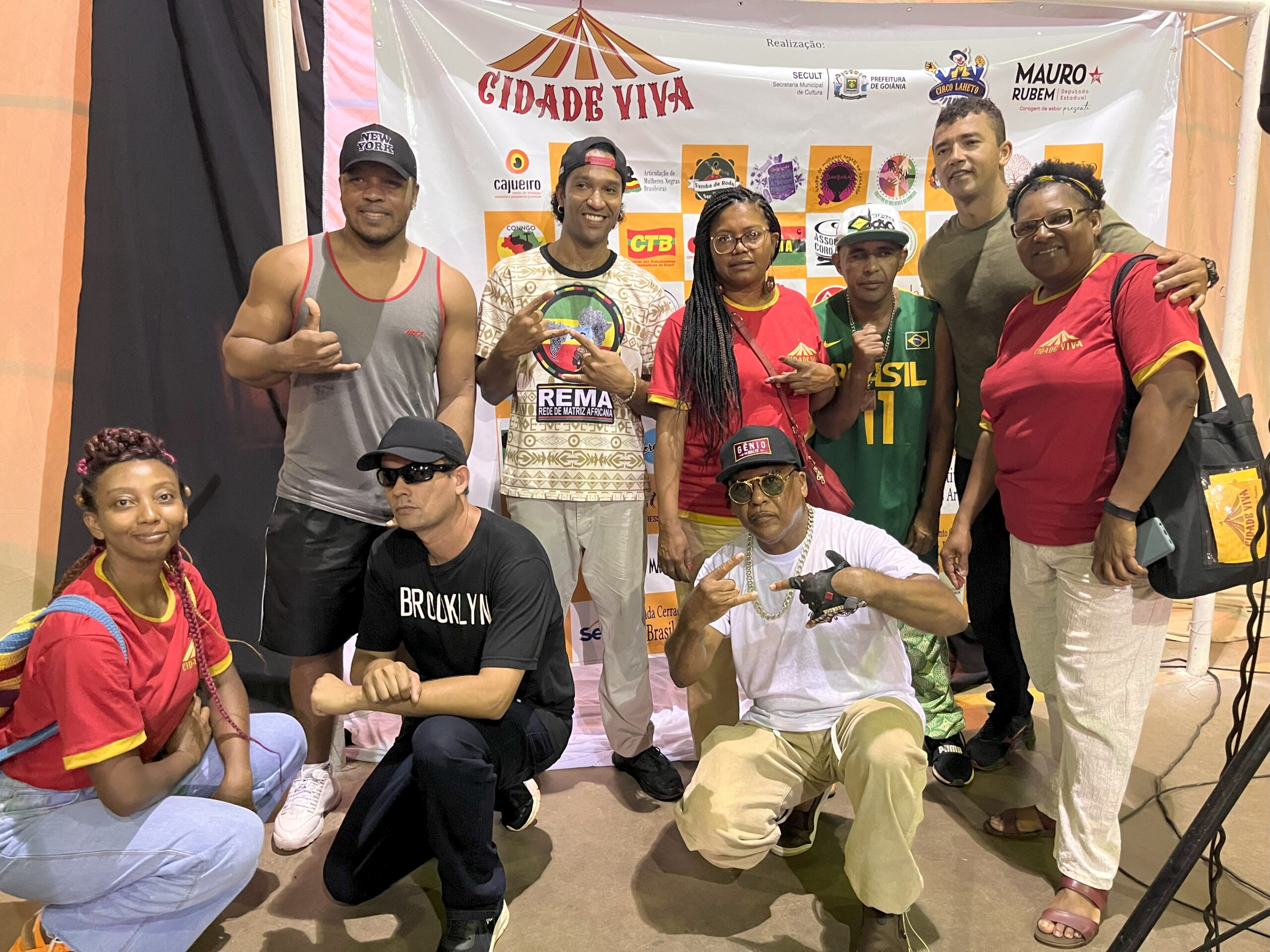

Want to support this cause?
To find out more, follow the profile @pretasdeangola on Instagram and Facebook.
